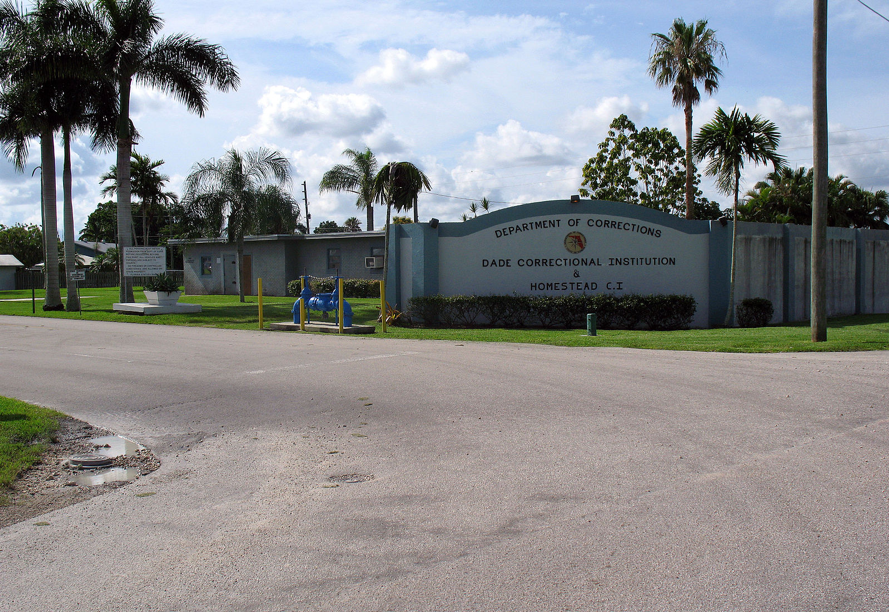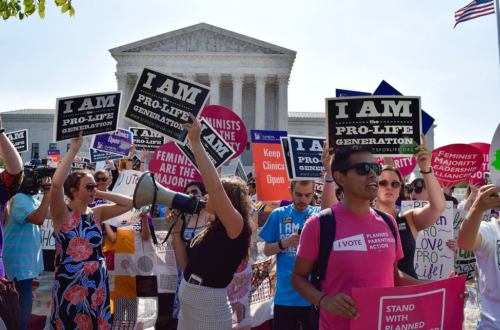The rising number of COVID-19 cases in Florida’s prisons and jails has prompted calls for early release of inmates. However, Florida has been hesitant to do so.
As of August 13, 14,271 inmates have tested positive for COVID-19; this is an increase of over 3,000 cases over the last week. There are approximately 96,000 inmates in Florida.
2,185 corrections officers have also tested positive. This puts a strain on healthy officers who are needed to work longer hours and additional shifts — yet another issue for Florida’s criminal justice system to tackle amid the pandemic.
Many facilities are overcrowded, making social distancing a challenge. According to the Florida Department of Corrections, precautions are in place to protect inmates and staff from exposure, and preventative measures are being followed per CDC recommendations.
Criminal justice reform advocates are demanding action to protect inmates.
In April 2020, members of the Florida Campaign for Criminal Justice Reform sent a letter to Gov. Ron DeSantis, R-FL. The letter contained a draft Executive Order that would address COVID-19 risks faced by incarcerated inmates.
The letter requests that Florida’s correctional facilities release older and immunocompromised inmates with less than two years remaining on their sentence in addition to anyone whose sentence will end in the next year.
Jeff Brandes, Senate Criminal and Civil Justice Appropriations Chairman, supports the release of nonviolent offenders. He suggests released inmates be placed on house arrest, electronic monitoring, or community supervision.
While Florida has not issued any statewide orders, individual counties have taken action.
On March 26, Hillsborough County issued an administrative order to release certain pretrial detainees in an effort to protect incarcerated individuals amidst the public health emergency. St. Lucie County issued a similar order on May 26.
A pretrial detainee is an accused person in a criminal case who is detained prior to their trial. They are detained while awaiting trial either because they cannot pay bail, or they were denied bail.
In both counties, the released detainees were originally arrested for a municipal or county ordinance violation, a misdemeanor offense, a criminal traffic offense, or a third-degree felony offense.
Critics take issue with the fact that pretrial detainees accused of a third-degree felony, which includes automobile theft and trespassing while armed with a weapon, can classify as posing no threat to the safety of citizens and be released.
The Florida governor does not believe that releasing felons would improve the COVID-19 situation. “I don’t see how, in a time of pandemic where people are on edge already, releasing felons into society would make a whole lot of sense,” DeSantis said.
This statement came a few months after Joseph Edward Williams, who was initially arrested on assorted drug charges, was one of the inmates released from Hillsborough County jail in late March. He was arrested one day later on multiple charges, including second-degree murder.
All of the inmates released from Florida correctional facilities, including Williams, were deemed to not pose a threat to the safety of citizens. However, the incident with Williams confirms the fears of many Floridians.
“The question is, how do I look a constituent in the eye who is burying a family member because I advocated to let somebody out of prison who has a violent past or had no business being let out of prison just in the name of COVID-19,” said state Rep. James Grant, R-District 64, the House Criminal Justice Chairman.
Other states are reporting similar instances of COVID-19 early-release inmates reoffending soon after. In New York, 250 reoffenders were arrested 450 times. New York policies meant to reduce prison populations have led to a cycle of arrests and immediate release.
Ibrahim E. Bouaichi, a Virginia prisoner charged with six felony counts of rape, was released on April 9. Three months later, he was accused of murdering his accuser. Ibrahim died from a self-inflicted gunshot wound before police could arrest him.
All the while, COVID-19 continues to infect inmates and officers throughout Florida. Families of inmates are concerned about the health of their loved ones.
A 63-year-old inmate at Florida’s Bay Correctional Facility, William Forrester, has one lung after fighting cancer; he tested positive for COVID-19 in July. With less than a year left on his sentence, he requested to be furloughed to home confinement in May and June. Both requests were denied.
Forrester said the prison’s doctor refused distribution of common painkillers, such as ibuprofen and Tylenol, because the medicine “masks a fever.” The Department of Management Services has not confirmed or denied this statement.
Saferia Johnson, an inmate at Florida’s Coleman federal prison, died from COVID-19 in July. She was a 36-year-old woman with long-term, pre-existing medical conditions. Johnson was serving a 70-month sentence for tax fraud and identity theft.
In Florida, 75 inmates have died from COVID-19. The debate over early release continues as Florida attempts to balance inmate health with public safety.
Featured image: Dade Correctional Institution in Homestead, Florida. (Unmodified photo by Tami Jo Urban used under a Creative Commons license. https://bit.ly/2YSb1cy)





